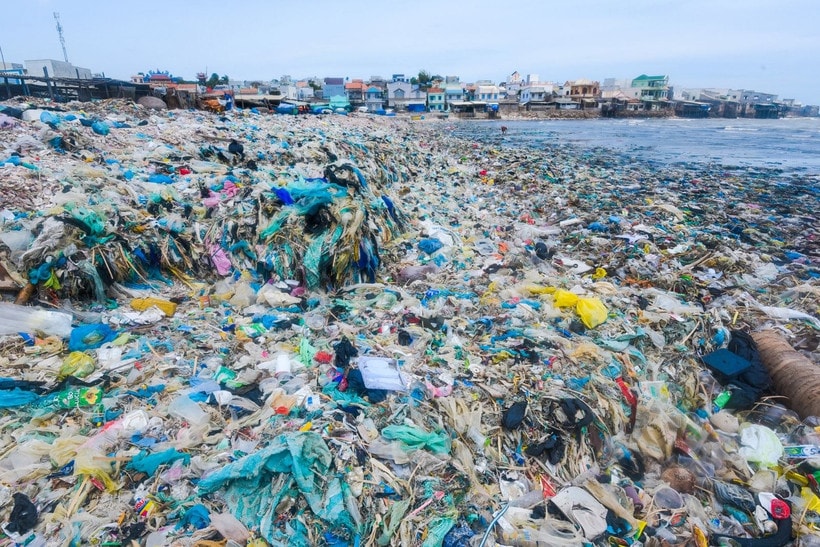Hanoi takes bold steps towards plastic-free future
Currently, Hanoi generates nearly 1.43 million tonnes of waste per day, with plastic bags and single-use items accounting for about 60% of that total.
Hanoi has launched an ambitious plan to curb plastic waste, aiming for a cleaner environment and better public health.
On July 10, the municipal People's Council passed a resolution outlining strict measures to reduce plastic emissions, in line with the 2024 Capital Law. The resolution sets out a clear phased roadmap for gradually restricting single-use plastics.

Currently, the capital generates nearly 1.43 million tonnes of waste per day, with plastic bags and single-use items accounting for about 60% of that total.
Shifting consumption habits
From January 1, 2026, hotels, resorts, and tourist destinations in Hanoi will no longer be allowed to use single-use plastic items such as toothbrushes, razors, cotton buds, and shower caps. Plastic sachets for products like toothpaste, shampoo, body lotion, and similar items will also be banned, according to the resolution.
Public agencies and administrative offices will be required to stop using single-use plastics and non-biodegradable packaging, including plastic bags and foam food containers, unless certified under Vietnam’s eco-label programme.
The resolution also sets firm deadlines for the commercial sector. From January 1, 2027, traditional markets and convenience stores will be prohibited from distributing non-biodegradable plastic bags free of charge. A year later, these outlets must stop selling or using single-use plastics and difficult-to-decompose packaging altogether, with an exception for pre-packaged goods.
Online retailers are also requested to cut back on plastic use, particularly shock-absorbing plastic materials. They must put in place measures to recover such packaging to prevent environmental leakage.
Targets for production
From January 1, 2028, manufacturers using polyethylene (PE) and polypropylene (PP) in packaging production will be required to include at least 20% recycled plastic in their products. This minimum will increase to 30% from January 1, 2030.
The city will also gradually phase out the production and import of single-use plastic items, non-biodegradable packaging, and products containing microplastics. From January 2031, Hanoi will completely ban the production and import of such items, unless they are certified under the national eco-label programme.
Legal backing and public support
Duong Ngoc Luu, a resident of Cau Giay ward, said the resolution demonstrates strategic vision and reinforces shared environmental responsibility.
Nguyen Thi Nhung, a grocery shop owner in Ha Dong ward, said she has already replaced plastic bags with paper. While this increased costs slightly, she believes the long-term benefits far outweigh the short-term burden.
Associate Professor Dr. Luu Duc Hai, Chairman of the Vietnam Environmental Economics Association, stated that the city's phased restrictions on plastic use should be accompanied by increased taxes on the production and consumption of non-biodegradable plastic bags.
He also called for clearer technical standards and safety regulations for alternative materials such as biodegradable bags, paper boxes and cloth bags.
Lawyer Le Quang Vung emphasised the importance of enforcing provisions in the 2024 Capital Law, especially the requirement for local authorities to implement waste sorting at source and adopt advanced waste treatment technologies.
Reducing plastic waste also requires sustainable solutions from both businesses and the wider community.
Experts have suggested that Vietnam should recognise reputable international certificates for biodegradable products—such as the “compostable” labels used in Europe and the US—to support domestic enterprises in manufacturing, market access and product promotion. Such measures would reflect Hanoi’s strategic vision towards balancing economic growth with the need to tackle plastic pollution./.


